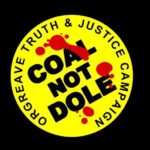Botchie
Striker
'Dole wallers'. It used to be shameful for able bodied people to people to living off the state, it's a badge of honour now.
Some great footage, makes you wonder how they got it.Documentary on BBC2 at 9 (or on the iPlayer now) similar to the one they did about the Troubles where they just let people involved actually talk.
It’s an interesting watch.
Last edited:

